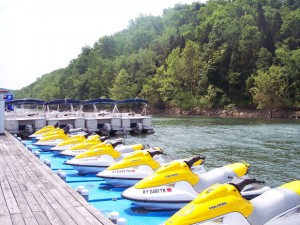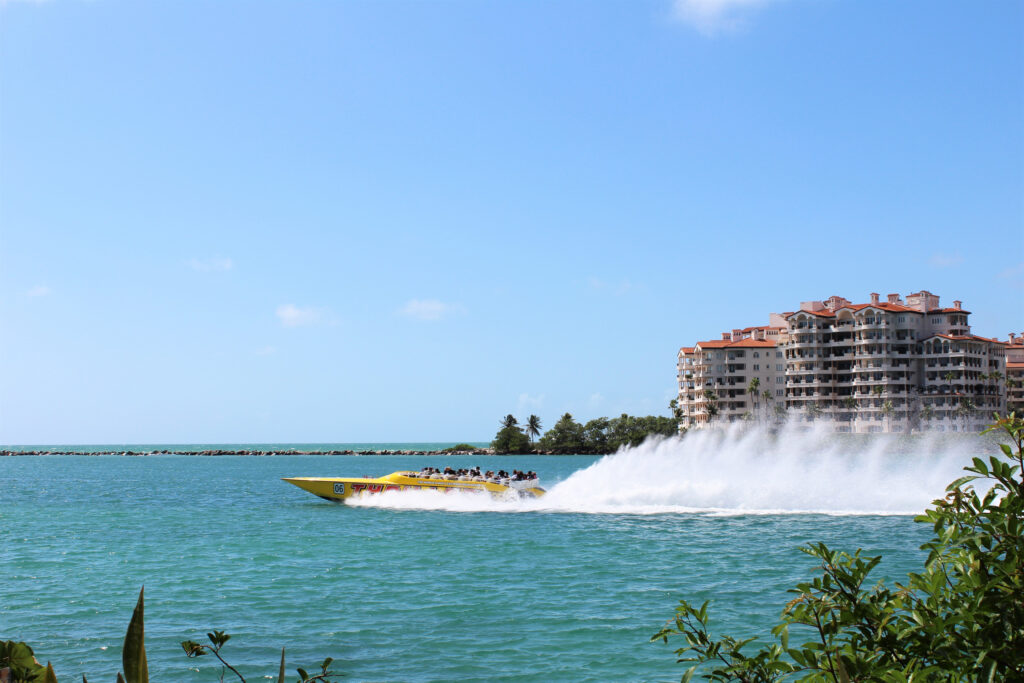
One of the favorite pastimes for beachgoers in Miami is Jet Skiing. Sure, Jet Skiing can be a lot of fun, but it is actually one of the most dangerous water activities there are. Not everyone who rides a Jet Ski wears a lifejacket and because no one really regards a Jet Ski as a motor vehicle, despite the fact that it is one, who really wears a helmet when they are out on their personal watercraft? No one.
And so, accidents happen and people sustain severe and often fatal injuries. But what exactly can people do to stay safe on Jet Skis and other personal water crafts? Are there any laws specifically governing Jet Ski operation people should know about? The answer is yes.
Each state has its own maritime laws regarding boat and personal water craft safety that beach and lake goers should learn about. In Florida, for example, anyone who is 21 years of age and younger is required to carry a boating safety education card and a photo ID while operating a water craft or vessel with 10 horsepower or greater. Jet skis, wave runners and similar personal water crafts, which are often referred to as PWCs, are included in this regulation. Furthermore, the state prohibits children under 14 years of age to operate a PWC and everyone, regardless of age, who is operating a personal water craft in Florida waters must wear a personal floatation device (PFD), aka lifejacket.
Laws are in place for a reason, yet many people disregard them, allowing young children to operate PWCs without thinking they may get hurt. Sadly, a tragic accident two weeks ago in North Carolina demonstrated the importance of abiding by personal water craft laws as well as the importance of guarding children when near open waters.
The accident occurred on June 20 on North Carolina’s Lake Norman. It was a relatively peaceful day on the lake but that all changed around 4 o’clock in the afternoon. Neighbors reported hearing a large crash and people screaming and when they went to investigate, an elderly man was crying for help because his grandson had been involved in a jet ski accident.
The little boy, only 9 years old, was visiting his grandparents on the lake with his sisters and had spent the past few days enjoying various water activities. But just one wrong move cost the young victim his life.
According to police, the young boy was riding on a Jet Ski operated by a 15-year-old girl when another Jet Ski with two other children suddenly crashed into them. The other children were ages 15 and 10. No one else was seriously injured.
The boy was rushed to a nearby hospital but it was too late. He later died of his injuries. These kinds of devastating accidents occur more often than anyone can imagine. Because they are minors, the names of the children have been withheld from the public. Information as to whether the children were wearing lifejackets was not provided, but chances are they were not.
This horrific maritime accident could have been prevented had the children been properly supervised and had the 9- and 10-year-old children not been allowed to ride the Jet Ski with their older siblings. Yet, as we get deeper into the summer, PWC and other boating accidents will continue to happen and one of the biggest reasons as to why is because boaters lack knowledge regarding even the most basic water craft safety.
Aside from each state’s laws regarding PWC operation, there are other key factors that can save lives out in the open waters. As the old adage goes, “knowledge is power,” and it starts with learning everything you can about Jet Ski operation.
Here are a few tips each PWC operator should know in order to protect themselves and others against a serious accident:
- Learn how your PWC works. A common misconception about jet skis is that they can stop immediately in the water. In reality, it can take a considerable amount of time and distance for a personal water craft to come to a complete stop. Learn about how fast your craft can go and learn about speed and stopping distance regulations in your state so you can avoid crashing into another personal water craft, boat, dock, or other object in the water.
- Don’t show off. Who doesn’t like to show off their skills, especially when it comes to water sports? But as fun as this can be, it is extremely dangerous. Leave the stunts to professionals and stick to riding a Jet Ski the good old fashioned way: SAFELY. Despite different state laws, nearly every maritime jurisdiction in the United States prohibits water craft “tricks” because they can be extremely dangerous. Jumping over other vessels, making sharp turns and racing other water crafts is against the law in pretty much every U.S. state and for a reason. These stunts can cause fatal injuries, so it’s better to leave them to the professionals.
- Make sure your PWC is properly maintained. Many maritime accidents are the result of equipment failure. Check your craft regularly for mechanical issues, especially during the summer, when PWCs are likely to be left out in the water where they can become damaged.
- Keep a safe distance between other PWC riders. As we now know, Jet Skis and other PWCs cannot come to an abrupt stop. If you don’t maintain a safe distance between your PWC and another craft or vessel, chances are you will collide and the damage will be catastrophic. Maintain a prudent distance between your craft and others in the area.
- Refrain from speeding. This one goes without saying. Speeding is one of the top factors contributing to maritime accidents and it is one factor that can be completely prevented. Water crafts don’t travel as fast as boats but they can go fast enough to cause severe and fatal injuries. Operate your craft at a safe speed and encourage others in your party to do the same.
- Wear a lifejacket. This is critical to ensuring safety out in the open waters. Whether your state imposes a mandatory lifejacket rule for personal water craft users or not, wear a life jacket for your own safety. If you crash out in the open waters and become injured, you may very likely become unconscious. Without a lifejacket, you may drown before emergency crews are able to reach you. Your lifejacket is your only defense against drowning. Never go out in the open waters without one.
- Do not drink while operating a PWC. Alcohol is the leading cause of boating accidents around the country. Alcohol impairs judgment, coordination and balance and leads to severe collisions among boaters and PWC users. If you are going to drink, do so on land and in the presence of designated drivers. Intoxication from alcohol is exacerbated while in the open waters because of the motion of the waves, wind and heat. Don’t let one bad decision cause a lifetime of regret.
These are just a few things PWC users can do to stay safe this summer and protect their loved ones from harm. It’s important for all boaters and water craft users to understand that just one wrong move can cause severe accidents, so abiding by proper maritime safety regulations and advising others to do the same is the best way to reduce the incidence of accidents.
Published on July 2, 2013
Categories: Boating Accidents, Jet Ski Accidents
Get Free
Consultation









